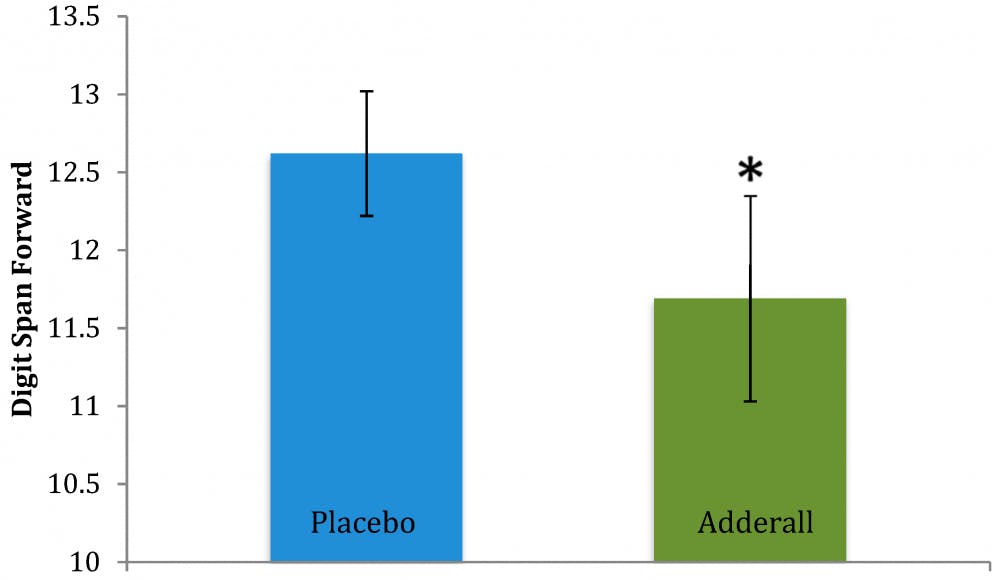Many college students in the United States abuse prescription ADHD medications with the belief that they can improve focus and cognition to achieve academic success. The results of recent research, however, suggest that these medications — specifically Adderall — either have a negative or nonexistent effect on performance in a number of brain processes.
The study, published in Pharmacology, looked at the performance of “healthy” college students — students with no attention or major medical disorders — who took both Adderall and a placebo at different times, said Lisa Weyandt, professor of psychology at the University of Rhode Island and co-lead author of the study. The study was conducted with 13 participants who were given 30 mg of Adderall — a common dosage that college students take — and took tests to measure performance on and off the drug, said Tara White, assistant professor of behavioral and social sciences and co-lead author of the study. Participants’ results with the drug were compared with their results without the drug to control for any factors that could affect differences in performance, said Bergljot Gudmundsdottir, a researcher who worked on the study.
The team initially hypothesized that the drug would increase performance in these students. “What we found was that the results were mixed — if anything, they point to the opposite,” Gudmundsdottir said. The team was surprised to find that the drug did not enhance healthy students’ cognition, which is the primary reason college students take the drug in the first place, Weyandt said. Cognitive processes such as reading comprehension, the ability to maintain attention over time and the inhibition of impulses were unaffected by Adderall, while working memory was negatively affected, she added.
However, Adderall did increase the students’ alertness because it is a stimulant like coffee and energy drinks, Weyandt said. The students also reported feeling happier than they did on the placebo, White said. Physiologically, the drugs increased cardiovascular and central nervous system activity, White added.
The increase in happiness, as well as the commonly held belief that the drugs improve cognitive performance, are most likely the driving reasons behind their prevalence on college campuses, Weyandt said.
While research has shown that the abilities to maintain attention and inhibit impulses improve when students with ADHD take Aderall, students without ADHD do not experience the same effects, she said. “An analogy I sometimes use is if you wear glasses or corrective lenses. If someone … doesn’t have a visual impairment, and they put on your glasses, that’s not going to enhance their vision – in fact, it makes things blurrier,” Weyandt added.
In her other research, Weyandt estimated that anywhere from 5 to 35 percent of college students are abusing these prescription drugs. College students who have lower GPAs and worse study skills and experience more psychological distress have an increased risk of abusing these medications, Weyandt said. Given that the medication does increase alertness and happiness, as well as act as an appetite suppressant, it can be an attractive option for some students, she said.
Students who abuse these drugs are placing themselves at a greater risk for other health issues, such as cardiac conditions, Weyandt said. Society should pay attention to the dangers of misusing them, Gudmundsdottir said. “It’s a public health issue that we all need to be aware of to mitigate,” she said.
Weyandt’s takeaway is that students should seek out their university’s resources for long-term solutions rather than resorting to pills for a short-term fix.
The study is significant because it helps to dispel an “urban myth” regarding drugs like Adderall and their effects on healthy college students, said Edward Walsh, assistant professor of neuroscience, who was unaffiliated with the study. “Abuse of Adderall in the hopes of getting some kind of cognitive advantage of cognition is really a very dangerous thing,” he said.
Weyandt stressed that this is a pilot study intended to lead to further research and should be replicated with a larger sample.





